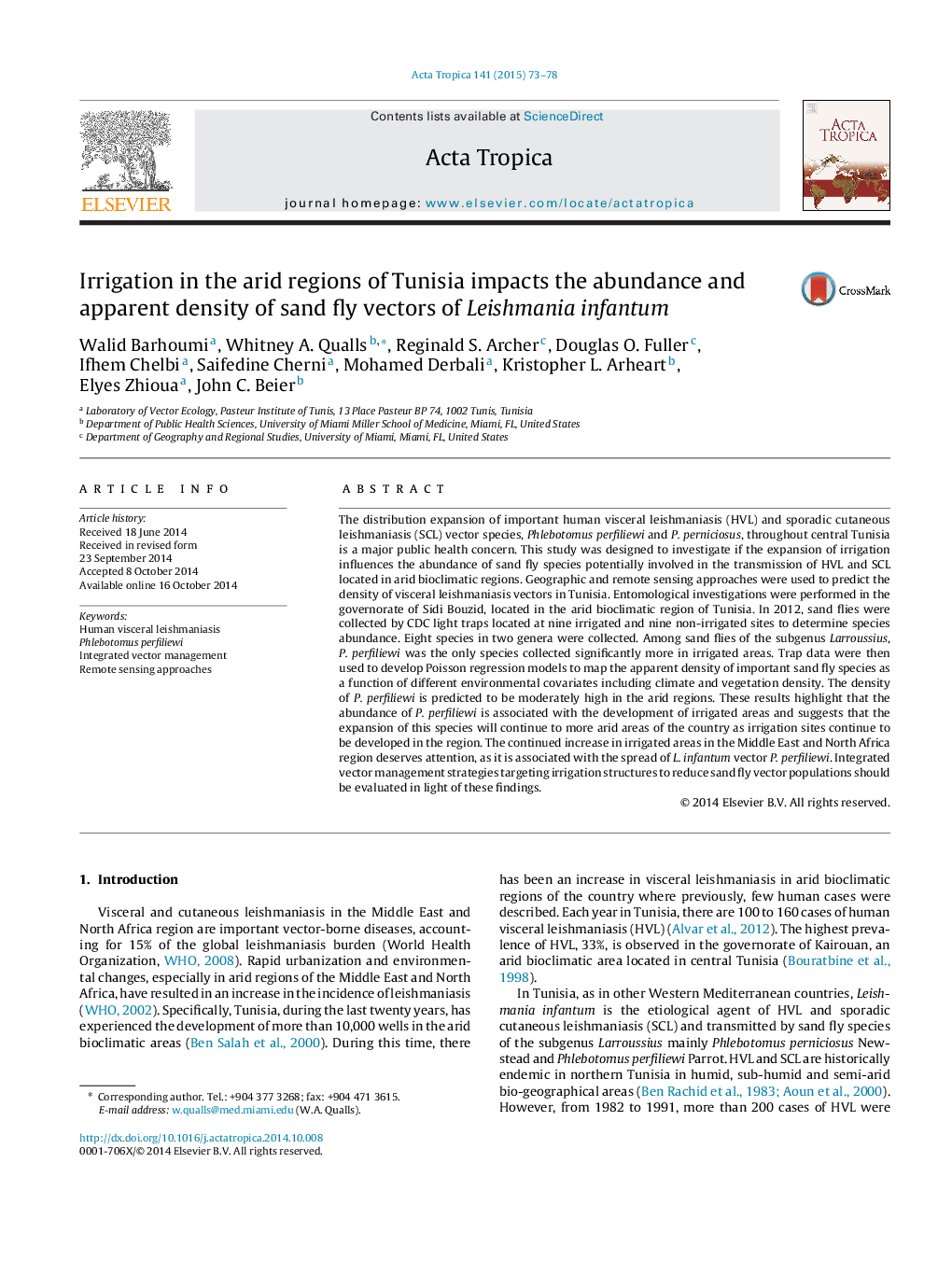| Article ID | Journal | Published Year | Pages | File Type |
|---|---|---|---|---|
| 6126977 | Acta Tropica | 2015 | 6 Pages |
Abstract
We evaluated the distribution expansion of important human visceral leishmaniasis (HVL) and sporadic cutaneous leishmaniasis (SCL) vector species, Phlebotomus perfiliewi and P. perniciosus, throughout central Tunisia. Both visceral and cutaneous leishmaniasis are important vector-borne diseases in Tunisia. With the increase of irrigation in arid areas of Tunisia over the last twenty years there have been increases in the number of visceral cases reported. More than 10,000 wells have been developed throughout arid areas of Tunisia. However, entomological investigations on the effects of irrigation on the abundance and distribution of important sand fly vectors have not fully been explored. In this study we demonstrated that the abundance of P. perfiliewi, important human visceral leishmaniasis vector, is associated with the development of irrigated areas in the governorate of Sidi Bouzid while the abundance of P. perniciosus is not influenced by irrigation. These findings suggest that the expansion of P. perfiliewi is most likely associated with the increase in the number of HVL and SCL cases reported. With the continued development of irrigation we predict that this important species will continue to expand its distribution into more arid regions of Tunisia. The development of integrated vector management approaches targeting these developed irrigation sites could reduce vector populations and promote public health.
Related Topics
Life Sciences
Immunology and Microbiology
Parasitology
Authors
Walid Barhoumi, Whitney A. Qualls, Reginald S. Archer, Douglas O. Fuller, Ifhem Chelbi, Saifedine Cherni, Mohamed Derbali, Kristopher L. Arheart, Elyes Zhioua, John C. Beier,
